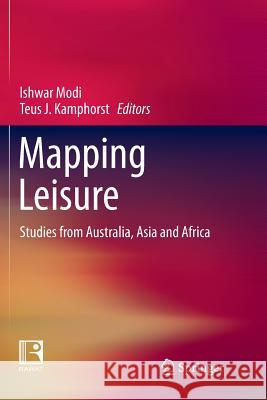Mapping Leisure: Studies from Australia, Asia and Africa » książka
topmenu
Mapping Leisure: Studies from Australia, Asia and Africa
ISBN-13: 9789811099267 / Angielski / Miękka / 2019 / 309 str.
Kategorie:
Kategorie BISAC:
Wydawca:
Springer
Język:
Angielski
ISBN-13:
9789811099267
Rok wydania:
2019
Wydanie:
Softcover Repri
Ilość stron:
309
Waga:
0.45 kg
Wymiary:
23.39 x 15.6 x 1.7
Oprawa:
Miękka
Wolumenów:
01











